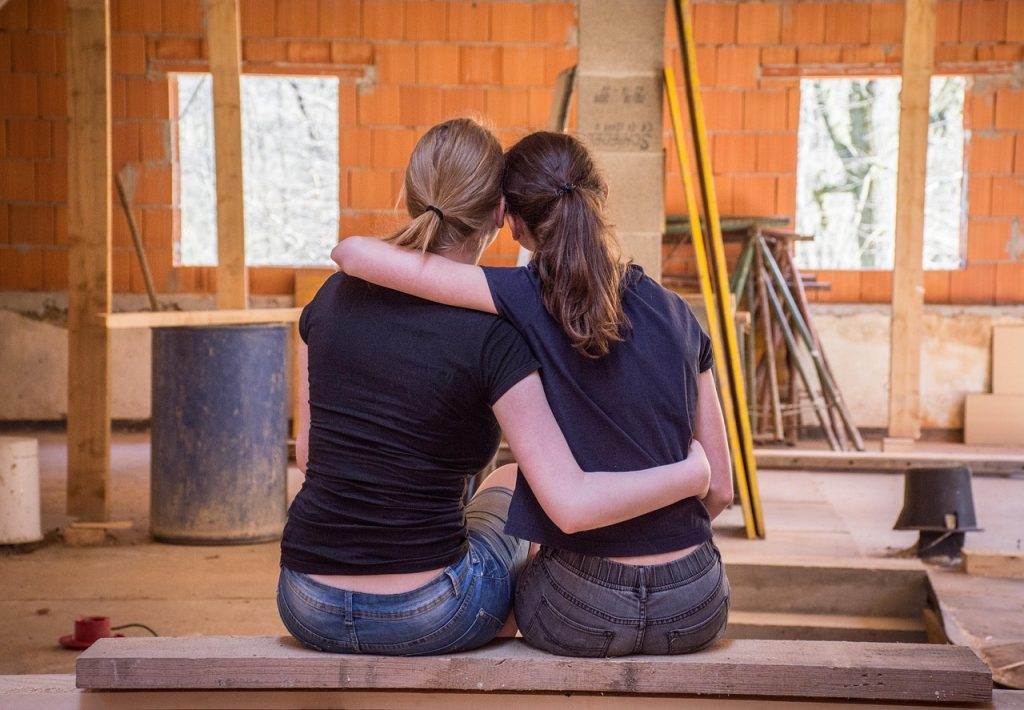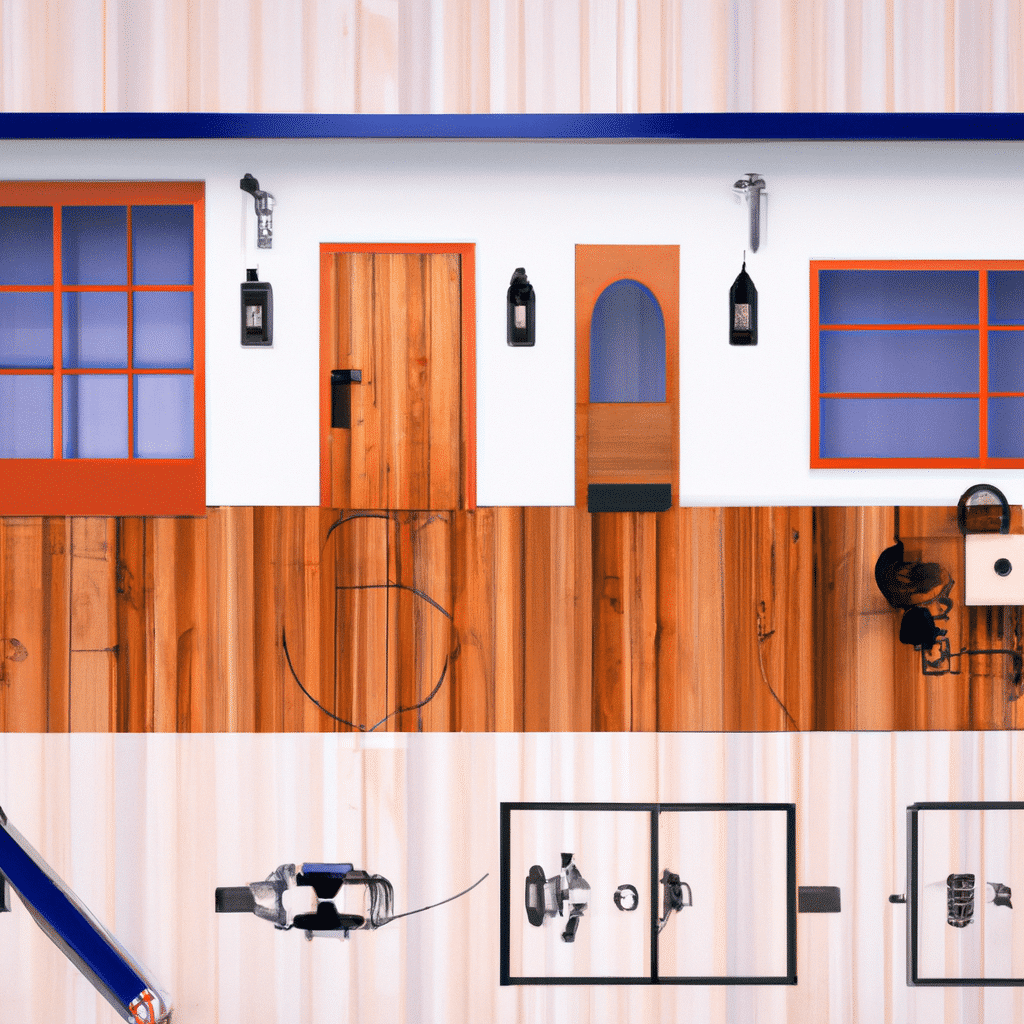So you’ve decided to give your home a much-needed makeover, but you’re not sure who to hire. Well, fear not, because in this article we will answer the burning question on your mind – what is a home renovator called? Whether you’re looking to spruce up your living room or completely revamp your kitchen, it’s important to know the right professional to call upon. So sit back, relax, and let’s dive into the world of home renovation.

This image is property of pixabay.com.
Definition of Home Renovator
A home renovator is a professional who specializes in improving and transforming residential properties. Their primary role is to renovate and remodel homes according to the specific needs and preferences of homeowners. Home renovators can work on various projects, ranging from minor repairs and updates to major renovations and complete home makeovers. They play a crucial role in enhancing the functionality, aesthetics, and value of a property, ultimately creating a more comfortable and enjoyable living space for homeowners.
Understanding the Role
The role of a home renovator goes beyond simply fixing things around the house. They are responsible for managing all aspects of a renovation project, from planning and design to sourcing materials, coordinating with subcontractors, and ensuring compliance with building codes and regulations. Home renovators work closely with homeowners to understand their vision and transform it into reality, making their expertise and guidance invaluable throughout the renovation process.
Scope of Work
The scope of work for a home renovator can vary greatly depending on the specific project. They may be involved in tasks such as updating kitchens and bathrooms, adding extensions or additions to existing structures, replacing flooring and fixtures, painting, landscaping, and much more. Home renovators can also specialize in specific areas, such as kitchen and bathroom remodeling or interior design, offering their expertise in those particular fields.
Skills and Expertise
To be a successful home renovator, one must possess a wide range of skills and expertise. They need to have a strong understanding of construction principles, including knowledge of different building materials, techniques, and tools. Attention to detail is crucial, as they must ensure that every aspect of the renovation is done to the highest standard. Problem-solving skills are also essential, as unexpected issues and challenges can arise during the renovation process. Creativity and design sense allow renovators to bring homeowners’ visions to life and create functional and aesthetically pleasing spaces.
Variations in Terminology
The terminology used to refer to home renovators can vary depending on the location and the specific nature of the work. Different titles may be used interchangeably, and it’s important to understand the nuances associated with each term. Let’s explore some of the common titles used for home renovators.
Titles for Home Renovators
General Contractor
A general contractor is responsible for overseeing and managing all aspects of a renovation project. They typically act as the primary point of contact for the homeowner and handle tasks such as hiring subcontractors, obtaining permits, scheduling work, and ensuring that the project is completed on time and within budget. General contractors have a broad knowledge of construction and renovation practices and can handle a wide range of projects.
Home Improvement Contractor
A home improvement contractor focuses on making improvements and upgrades to existing homes. They may specialize in specific areas such as kitchens, bathrooms, or outdoor spaces. Home improvement contractors work closely with homeowners to understand their needs and preferences and provide recommendations and guidance throughout the renovation process.
Construction Manager
A construction manager is responsible for overseeing the entire construction process, including renovations. They ensure that all aspects of the project, including budgeting, scheduling, and coordination with subcontractors, are handled efficiently and effectively. Construction managers have in-depth knowledge of construction methods and are skilled at managing large-scale renovation projects.
Remodeler
A remodeler specializes in transforming and updating existing spaces, often focusing on specific areas such as kitchens or bathrooms. They have expertise in renovation techniques and can provide guidance on design and functionality. Remodelers work closely with homeowners to ensure that their visions are brought to life while adhering to practical and budgetary constraints.
Renovation Contractor
A renovation contractor is responsible for managing and overseeing the renovation of residential properties. They coordinate all aspects of the project, from planning and design to sourcing materials, organizing subcontractors, and ensuring compliance with building codes. Renovation contractors have a comprehensive understanding of the renovation process and are skilled at managing projects of varying scales.
House Flipper
A house flipper is someone who purchases distressed or outdated properties, renovates them, and then sells them for a profit. House flippers are skilled at identifying properties with potential and making strategic renovations to increase their value. They often work on multiple projects simultaneously and have a strong understanding of the real estate market.
Specialized Home Renovators
Kitchen and Bathroom Remodeler
A kitchen and bathroom remodeler specializes in renovating and transforming these specific areas of a home. They have in-depth knowledge of the latest design trends, fixtures, and materials, and can provide valuable recommendations to homeowners. Kitchen and bathroom remodelers understand the unique challenges and considerations involved in these spaces, such as plumbing and electrical requirements.
Interior Designer
An interior designer focuses on enhancing the aesthetic appeal and functionality of a home’s interior spaces. They collaborate with homeowners to create a cohesive design scheme that reflects their style and preferences. Interior designers have a keen eye for detail and are skilled at selecting furniture, decor, lighting, and color schemes to create harmonious and visually appealing spaces.
Architect
An architect is a licensed professional who specializes in the design and planning of buildings. While not all architects directly engage in hands-on renovation work, their expertise is invaluable in developing detailed plans and drawings for renovations. Architects ensure that the design meets structural requirements, building codes, and the homeowners’ needs.
Electrician
An electrician specializes in electrical systems and is responsible for ensuring that the electrical infrastructure of a home is safe and up to code. During renovations, electricians may be required to update wiring, install new lighting fixtures, or add electrical outlets. They have a deep understanding of electrical regulations and safety standards.
Plumber
A plumber is responsible for installing, repairing, and maintaining plumbing systems in residential properties. During renovations, plumbers may be required to relocate or add new plumbing fixtures, such as sinks, toilets, or showers. They ensure that the plumbing system is working efficiently and meets local regulations.
Factors Influencing Terminology
The terminology used to refer to home renovators can vary based on several factors.
Legal Requirements
The terms used to describe home renovators can be influenced by legal requirements and licensing regulations. Different jurisdictions may have specific definitions and titles associated with the profession. It’s essential to understand the specific legal framework of the area in which you are working to ensure compliance.
Regional Differences
Terminology can also vary based on regional differences and cultural norms. Certain titles may be more prevalent or preferred in specific geographic locations. It’s important to be aware of these variations to effectively communicate and understand the roles and responsibilities of home renovators in different areas.
Type and Scale of Renovation Projects
The type and scale of renovation projects can also influence the terminology used. Some titles may be more commonly associated with specific project sizes or specialties. For example, a house flipper is typically associated with buying and renovating distressed properties for resale, while a general contractor may handle a wide range of projects of varying sizes.

This image is property of pixabay.com.
Qualifications and Licensing
Certifications and Training
While not all home renovators are required to have formal certifications, many choose to pursue them to enhance their skills and credibility. Various organizations offer certifications specific to different aspects of home renovation, such as kitchen and bath remodeling or green building practices. These certifications provide additional knowledge and demonstrate a commitment to quality workmanship.
Licensing and Permitting
The specific licensing requirements for home renovators vary by jurisdiction. Some areas may require a general contractor license, while others may have specific licenses for different trades, such as plumbing or electrical work. It’s essential for home renovators to understand and comply with the licensing requirements of the area in which they operate.
Building Codes and Regulations
Home renovators must have a comprehensive understanding of local building codes and regulations to ensure compliance throughout the renovation process. These codes dictate standards for construction and renovation practices, including requirements for structural integrity, electrical systems, plumbing, and more. It’s critical for renovators to stay updated on any changes or updates to building codes to ensure the safety and legality of their work.
Home Renovator’s Job Responsibilities
Planning and Design
One of the key responsibilities of a home renovator is to collaborate with homeowners to plan and design their renovation projects. They assist in refining ideas, providing expert advice, and creating detailed plans to guide the renovation process. Renovators help homeowners establish realistic project goals and explore design options that best suit their needs and preferences.
Budgeting and Cost Estimation
Home renovators play a crucial role in the budgeting and cost estimation process. They assess the scope of work, determine the necessary materials and labor, and provide homeowners with accurate cost estimates. Renovators help homeowners identify areas where cost savings can be achieved without compromising quality, ensuring that the renovation stays within budget.
Sourcing Materials and Equipment
A home renovator is responsible for sourcing and procuring all the necessary materials and equipment for the project. They utilize their industry contacts and knowledge to identify quality materials that suit the design and budget requirements. Renovators take care of coordinating deliveries, managing inventory, and ensuring that all materials are on-site when needed.
Coordination with Subcontractors
Home renovation projects often require the involvement of various subcontractors, such as plumbers, electricians, and carpenters. The renovator acts as the point of contact for these subcontractors and manages their schedules, ensuring that the work is coordinated seamlessly. Renovators are responsible for overseeing the subcontractors’ quality of work and ensuring that all tasks are completed on time.
Ensuring Compliance and Safety
Home renovators must ensure that all work is carried out in compliance with building codes and regulations. They are responsible for securing the necessary permits and inspections throughout the renovation process. Renovators prioritize safety and take measures to mitigate any potential risks associated with the project.
Project Management
A significant responsibility of a home renovator is project management. They oversee the day-to-day operations of the renovation project, ensuring that tasks are completed on time, materials are available when needed, and the project stays on budget. Renovators are skilled at managing resources, resolving conflicts, and adapting to unforeseen circumstances.
Quality Control and Inspection
Home renovators are responsible for maintaining high standards of quality throughout the renovation process. They conduct regular inspections to ensure that the work meets the set criteria and addresses any issues promptly. Renovators take pride in their craftsmanship and strive to deliver exceptional results to homeowners.
Customer Relations and Communication
Effective communication and strong customer relations are essential for home renovators. They maintain open lines of communication with homeowners, providing regular updates on the progress of the project. Renovators address any concerns or questions promptly, keeping homeowners informed and involved at every stage of the renovation.

This image is property of pixabay.com.
Attributes of a Successful Home Renovator
Attention to Detail
Attention to detail is crucial for a home renovator to ensure that every aspect of the renovation is executed flawlessly. From the selection of materials to the finishing touches, a keen eye for detail ensures that the final result is of the highest quality.
Problem-Solving Skills
Home renovations can present unexpected challenges and problems. A successful renovator possesses strong problem-solving skills and can quickly devise practical and efficient solutions.
Creativity and Design Sense
Creativity and a strong design sense are particularly important for home renovators involved in planning and designing projects. They can bring innovative and personalized ideas to the table, turning a vision into a physical reality.
Time and Project Management
The ability to manage time effectively and oversee multiple tasks is a valuable asset for a home renovator. They must set realistic timelines, coordinate with subcontractors, and ensure that the project progresses smoothly.
Communication and Interpersonal Skills
Clear and effective communication is essential to ensure that all parties involved in the renovation project are on the same page. Home renovators also need strong interpersonal skills to build relationships with homeowners and subcontractors.
Technical Knowledge
A home renovator must have a strong foundation of technical knowledge in areas such as construction, design, and building codes. This expertise allows them to make informed decisions and maintain the highest standards of workmanship.
Ability to Work Within Budget Constraints
Renovation projects often come with specific budget constraints. A successful renovator can work creatively within these constraints, finding cost-effective solutions and prioritizing spending for maximum impact.
Adaptability and Flexibility
Home renovation projects can be unpredictable, with unforeseen challenges and changes in plans. A home renovator must be adaptable and flexible, able to adjust to changing circumstances while maintaining the quality and integrity of the project.
Finding a Home Renovator
Referrals and Recommendations
One of the most reliable ways to find a reputable home renovator is through referrals and recommendations from friends, family members, or trusted professionals. They can provide valuable insights based on their personal experiences, helping you find a renovator who meets your specific needs.
Online Directories and Platforms
Online directories and platforms dedicated to home renovation services are a great resource for finding qualified renovators. These platforms allow you to browse through profiles, read reviews, and compare qualifications, making it easier to find a renovator who aligns with your requirements.
Trade Associations and Professional Networks
Trade associations and professional networks within the construction and renovation industry can provide valuable resources for finding qualified home renovators. These organizations often have strict membership criteria, ensuring that their members adhere to high standards of professionalism and craftsmanship.

Working with a Home Renovator
Establishing Clear Project Goals
When working with a home renovator, it’s essential to establish clear project goals from the outset. Clearly communicate your expectations, preferences, and any specific requirements you have for the renovation. This clarity helps the renovator understand your vision and ensures that they are working towards your desired outcome.
Obtaining Detailed Quotes and Contracts
Before beginning any renovation project, it’s crucial to obtain detailed quotes and contracts from your chosen renovator. These documents outline the scope of work, materials, timelines, and costs associated with the project. Ensure that you review and understand these documents thoroughly before proceeding.
Regular Communication and Progress Updates
Maintaining regular communication with your renovator is key to a successful renovation project. Regular progress updates keep you informed about the status of the project, address any concerns or questions, and allow for any necessary adjustments to be made.
Monitoring the Project’s Progress
While your renovator manages the day-to-day operations of the project, it’s important to actively monitor the progress. Regular site visits and discussions with your renovator help you stay involved and ensure that the work is being done to your satisfaction.
Handling Issues and Change Requests
Throughout the renovation process, issues or change requests may arise. Communicate these concerns promptly to your renovator, allowing them to address them effectively. Be open to suggestions and recommendations from the renovator, as their expertise can help guide decision-making.
Final Inspection and Sign-Off
Once the renovation is complete, conduct a final inspection with your renovator to ensure that all work has been completed to your satisfaction. If any final adjustments or touch-ups are required, communicate them clearly. Once everything meets your standards, sign off on the project and express your satisfaction with the work done.
Conclusion
A home renovator plays a vital role in transforming houses into dream homes. Their expertise and skills allow homeowners to bring their visions to life, enhancing the functionality, aesthetics, and value of their properties. Whether it’s updating a kitchen, remodeling a bathroom, or undertaking a complete home renovation, working with a qualified home renovator can make all the difference. By understanding the various titles, skills, and factors influencing terminology, homeowners can successfully navigate the process of finding, working with, and achieving their renovation goals with a home renovator.

